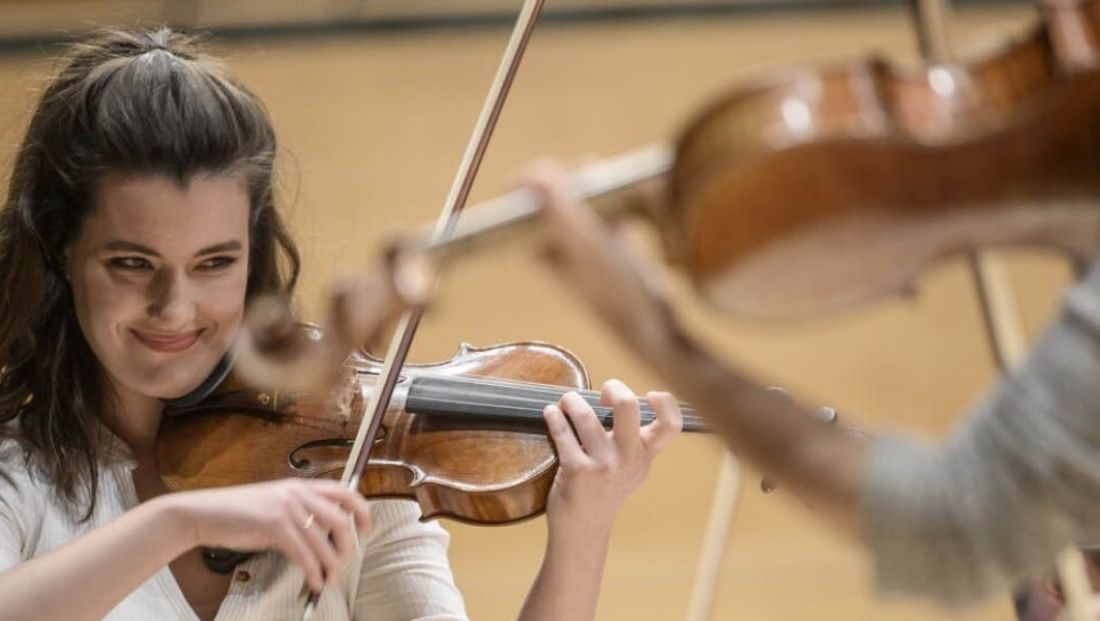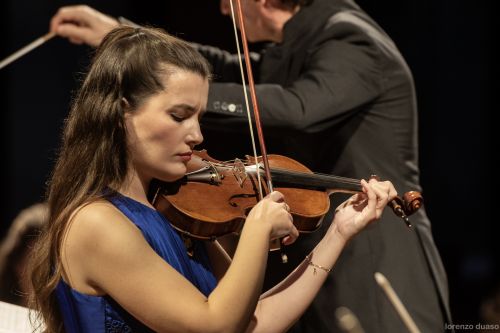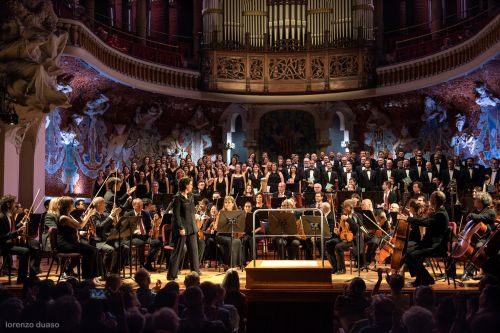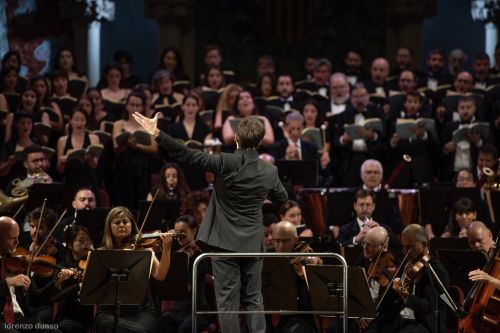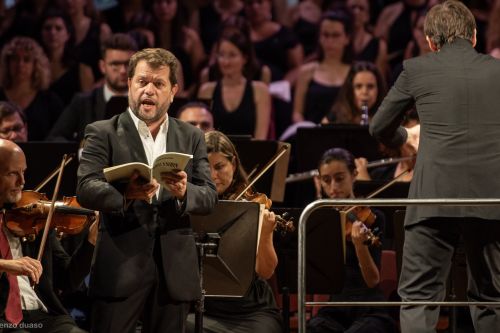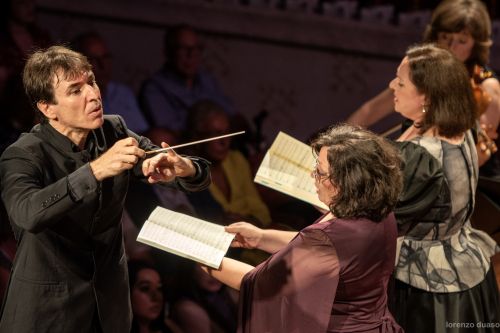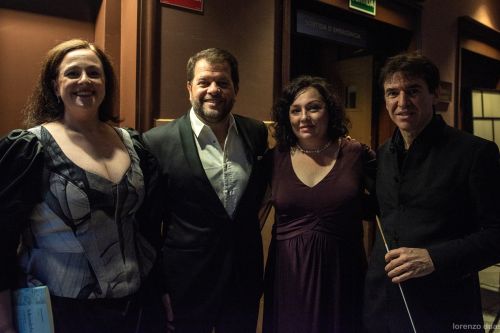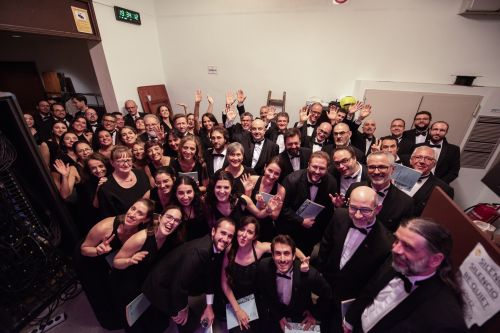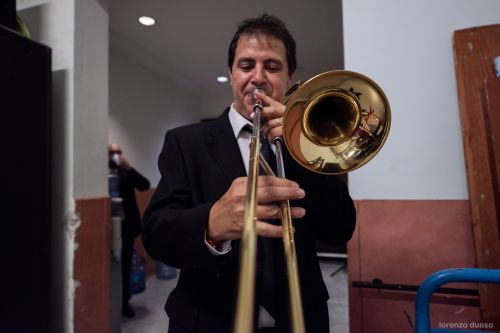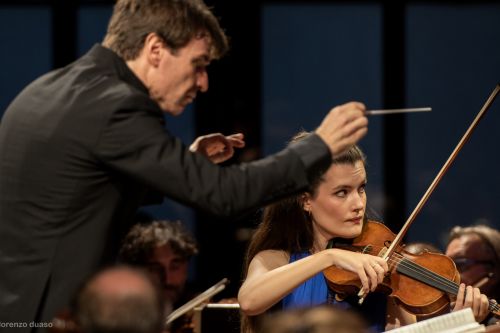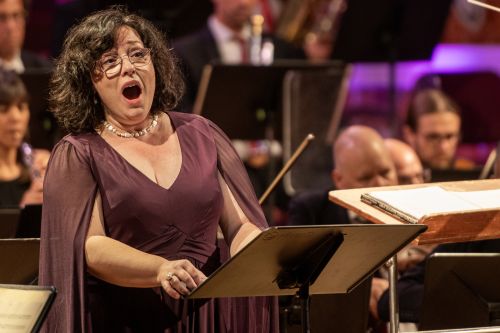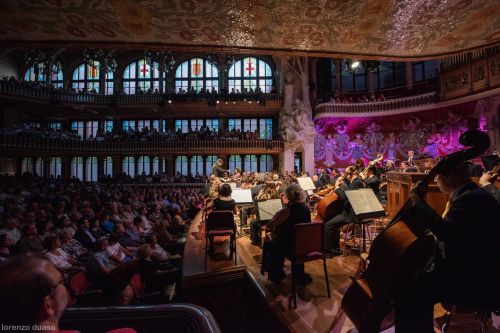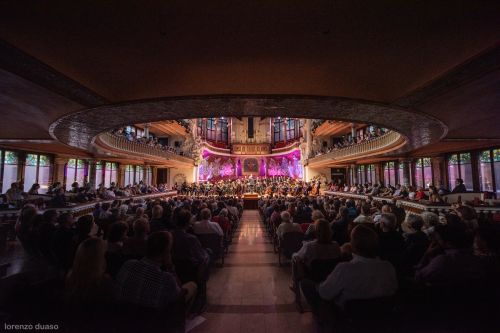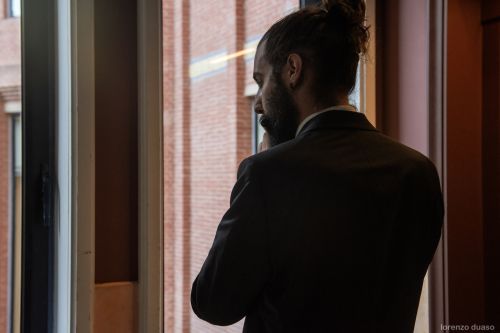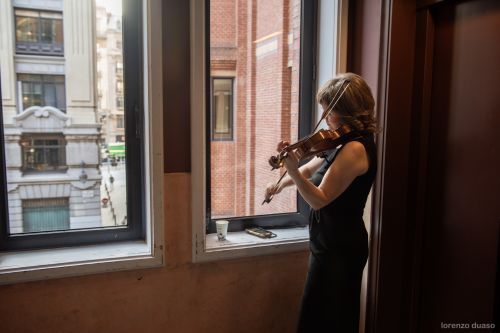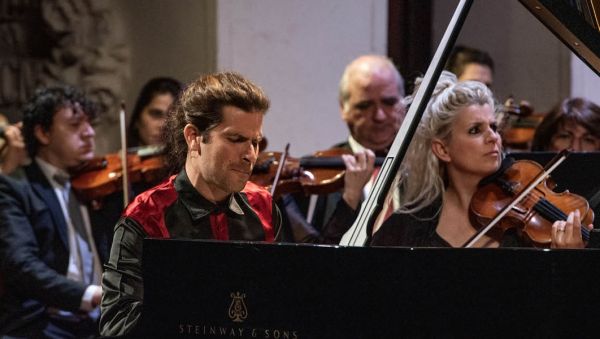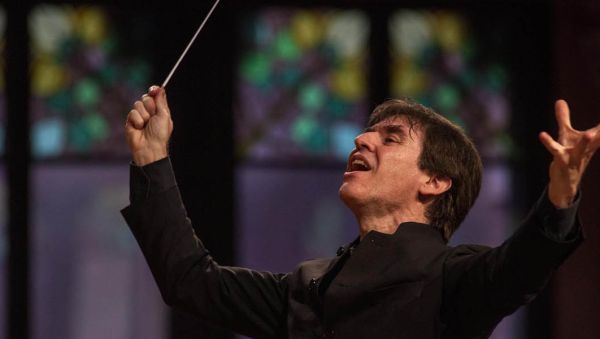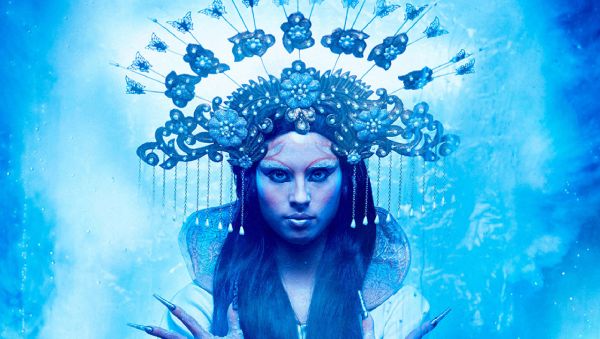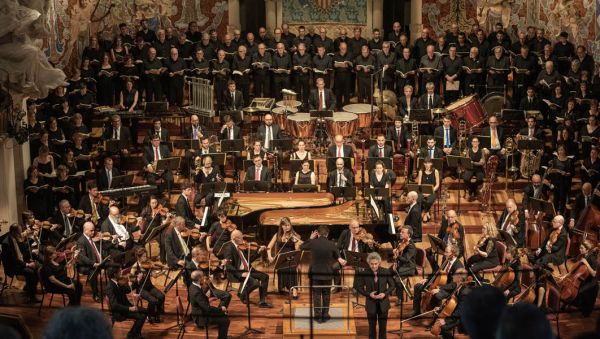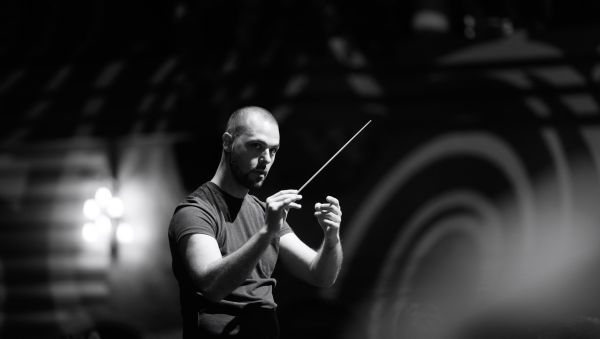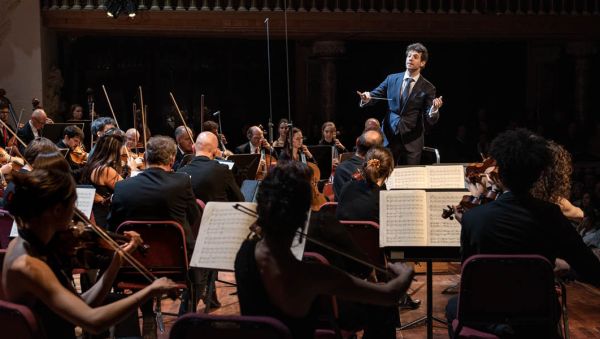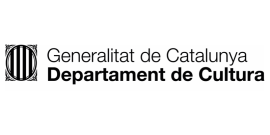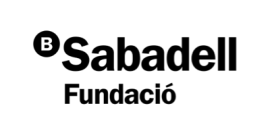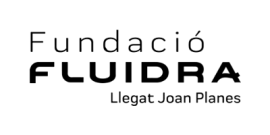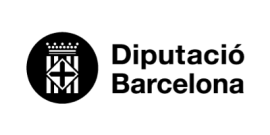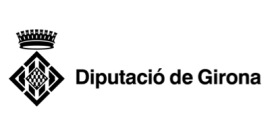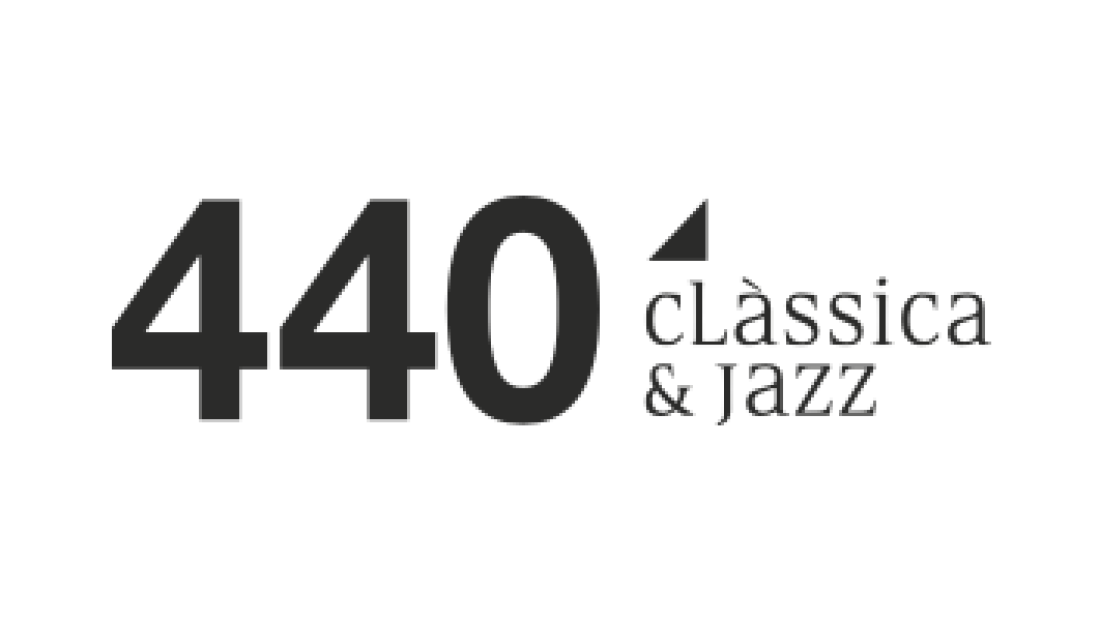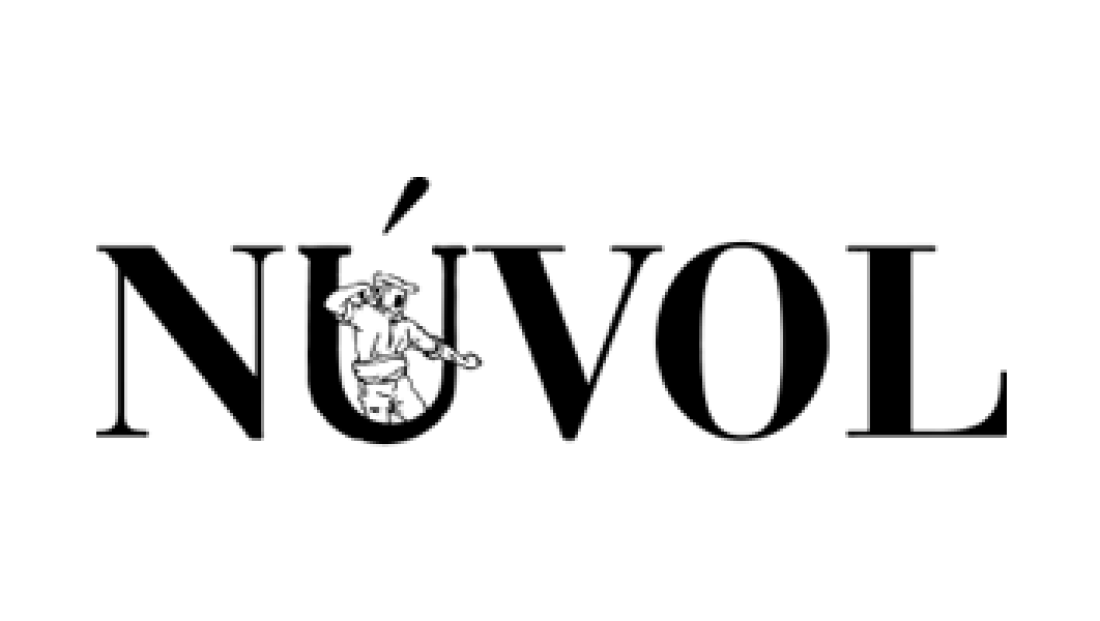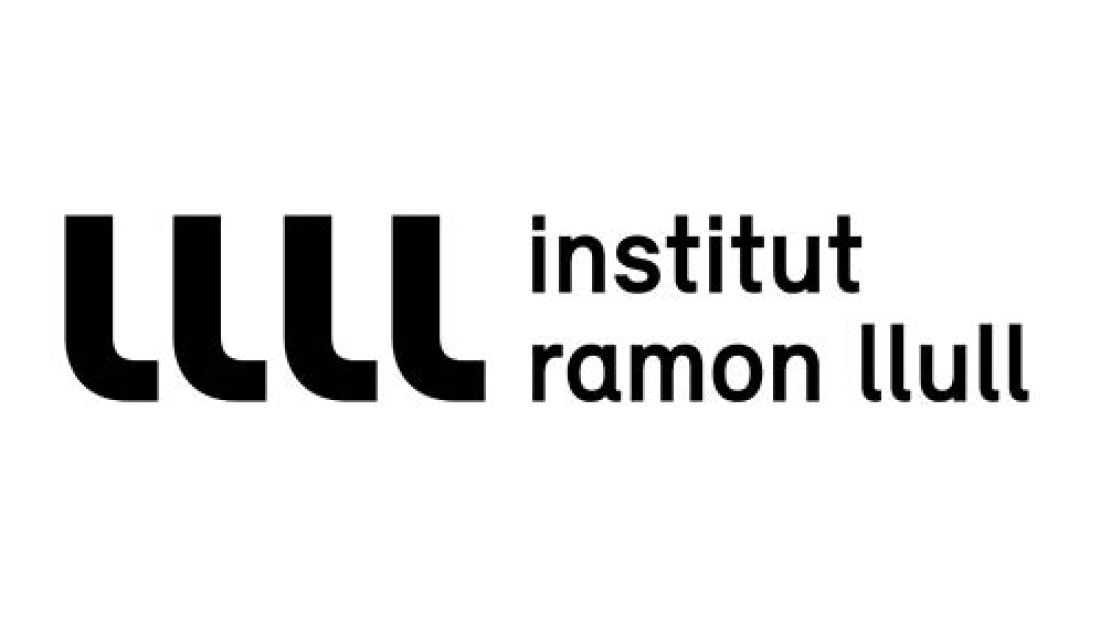Mendelssohn’s Violin Concerto
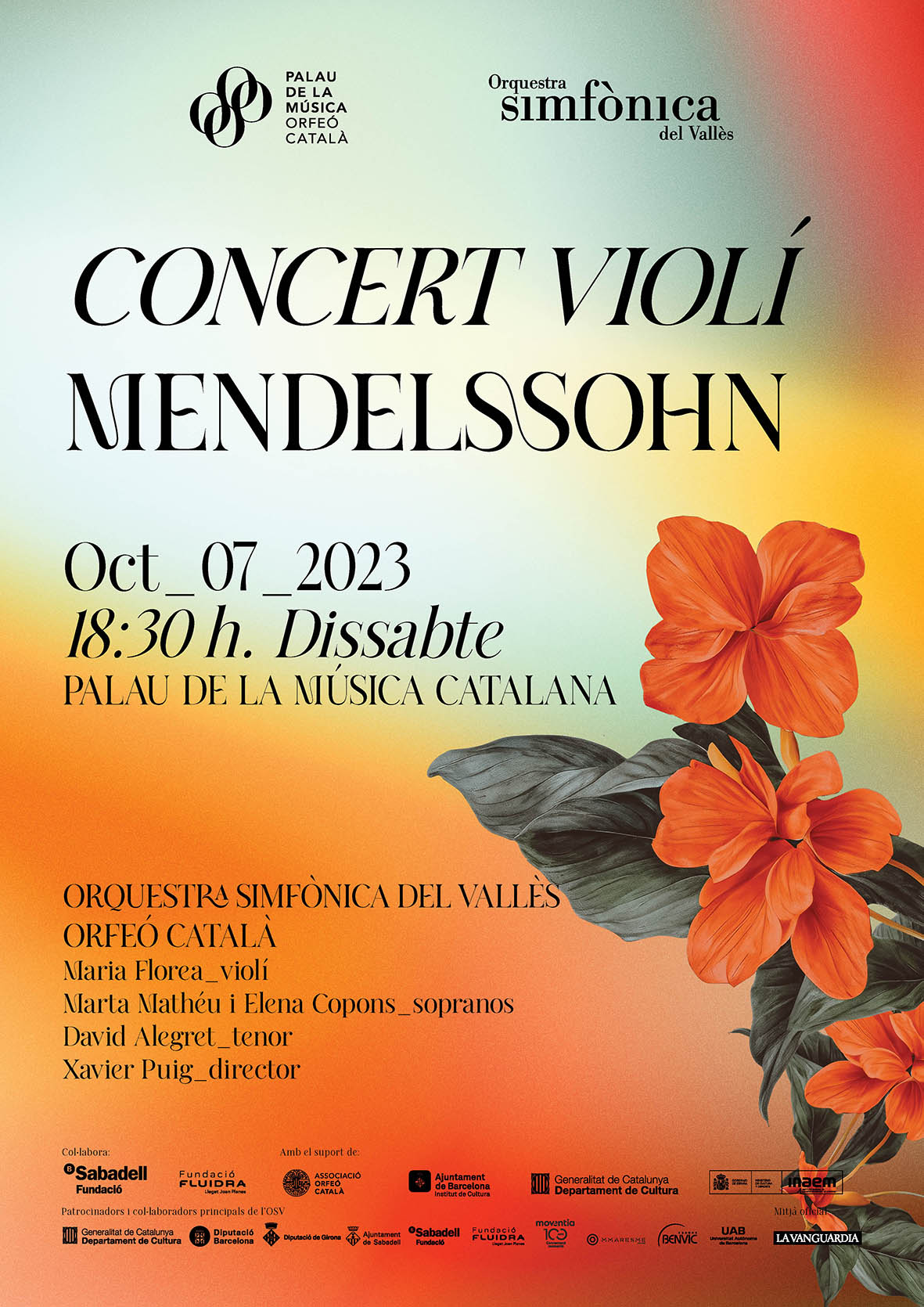
PERFORMERS
Maria Florea, violin
Marta Mathéu, soprano
Elena Copons, soprano
Roger Padullés, tenor
Orfeó Català (Dir. Pablo Larraz)
Orquestra Simfònica del Vallès
Xavier Puig, conductor
PROGRAMME
Fanny HENSEL Hero und Leander
Felix MENDELSSOHN Concerto for Violin
Symphony No. 2, “Lobgesang” (choral)
II. Chorus and soprano: Alles was Odem hat lobe den Herrn, meine Seele
III. Recitative and Aria (tenor): Saget es, die ihr erlöst seid durch den Herrn
IV. Chorus: Sagt es, die ihr erlöst seid vor dem Herrn
V. Duet (soprano I, II) and chorus: Ich harrete des Herrn
VI. Tenor solo: Stricke des Todes hatten uns umfangen
VII. Chorus: Die Nacht ist vergangen
VIII. Choral: Nun danket alle Gott
IX. Duet (soprano, tenor): Drum sing ich mit meinem Liede
X. Chorus: Ihr Völker! bringet her dem Herrn Ehre und Macht
The Concerto for Violin and Symphony No. 2 “Lobgesang” by Mendelssohn, along with “Hero und Leander” by the composer Fanny Hemsel, are masterpieces of the classical and Romantic repertoire.
Mendelssohn’s Violin Concerto influenced the concertos of several composers, who used some of its characteristics for their own concertos. Tchaikovsky, Sibelius or Liszt, for example, were inspired by the German composer to compose their works. This is why Mendelssohn’s Violin Concerto is one of the most popular and most-performed concertos of all time. It requires total mastery of the instrument and a technical precision of which only the finest soloists are capable. Maria Florea, of the Trio da Vinci, is ready for the challenge and is sure to move us and touch our hearts.
Mendelssohn’s Symphony No. 2, “Lobgesang”, is a work that combines brilliant compositional skills with deep emotional and spiritual force. With a variety of textures, unforgettable melodies and moments of great exaltation, this symphony captivates the audience and conveys a sense of grandeur and musical beauty. Written between 1839 and 1840, this symphony is considered one of the German composer’s most important and innovative works.
The performance of these works in the amazing Catalan modernist setting of the Palau de la Música Catalana, featuring the magnificent voices of the Orfeó Català and the soloists Marta Mathéu, Elena Copons, David Alegret, together with the Orquestra Simfònica del Vallès, is a unique, thrilling opportunity to immerse ourselves in Mendelssohn’s majestic melodies.
Although Fanny Hensel’s work did not receive the recognition and popularity it deserved during her lifetime, “Hero und Leander” is now appreciated as a significant contribution to Romantic music and as an example of her extraordinary creativity as a composer.

